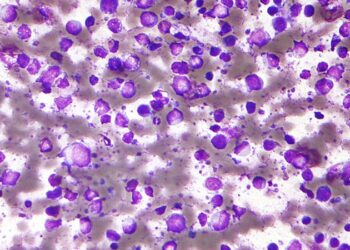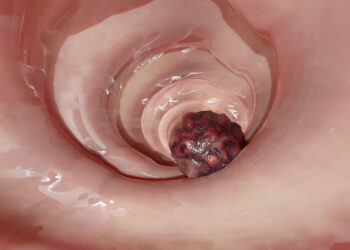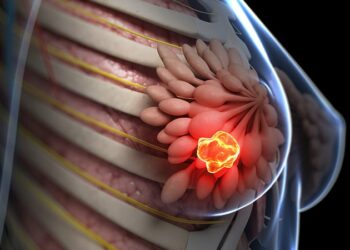The French Society for Biological Psychiatry and Neuropsychopharmacology has unveiled revised guidelines for the management of depressive disorders with partial and resistant responses to treatment.
The update was presented at the 43rd edition of the Congrès de l’Encéphale, France’s leading psychiatric event, held in Paris from January 22 to 24, 2025.
Professor Antoine Yrondi, a psychiatrist from the Toulouse University Hospital in Toulouse, France, elaborated on two key strategies from the expert consensus.
For patients who show a partial response to first-line treatment (less than 50% improvement), the recommended approach is to optimise the existing treatment before considering alternatives. Depending on the individual case, this may involve switching to an alternative treatment, such as tricyclics, vortioxetine, trazodone, or agomelatine, or combining treatments.
Among potential combination therapies, experts suggest adding mirtazapine or mianserin to another agent, such as lithium, lamotrigine, quetiapine, aripiprazole, esketamine, or neurostimulation. However, these augmentation strategies should be reserved for patients with recurrent depressive episodes. Additional agents such as ketamine, risperidone, or olanzapine are recommended only in a second phase of treatment.
For patients with minimal response to treatment (less than 25% improvement on the severity scale), monoamine oxidase inhibitors (MAOIs) can be considered as a second-line option. In contrast to partial responders, augmentation therapy can be introduced even during a first episode of treatment-resistant depression.
The Canadian Network for Mood and Anxiety Treatments has also updated its recommendations, introducing new elements that could be incorporated into future guidelines. One notable addition is lifestyle and dietary adjustments as part of depression management. Specifically, experts recommend 30-40 minutes of exercise every 2 days and exposure to light therapy (or natural outdoor light) as a first-line treatment for seasonal depression and a second-line option for non-seasonal depression. A recent meta-analysis has confirmed that light therapy improves both response and remission rates in depression, regardless of seasonality.
Additionally, Canadian guidelines advocate cognitive behavioural therapy (CBT), interpersonal therapy, and behavioural activation as first-line non-pharmacological approaches to depression.
While these therapies are not always covered by healthcare systems, digital tools that provide guided online CBT have shown effectiveness and may serve as a viable alternative to traditional in-person therapy.
Pharmacological treatment remains centred on selective serotonin reuptake inhibitors as first-line options, followed by tricyclic antidepressants and MAOIs. Despite a favourable benefit-risk balance, MAOIs remain under-utilised due to outdated concerns over dietary restrictions associated with tyramine-containing foods.
Non-selective MAOIs are considered a third-line treatment for depression. However, some experts believe they are under-utilised due to outdated concerns about dietary restrictions related to tyramine-containing foods. These restrictions are now considered less relevant, and the benefit-risk balance is increasingly favourable for their use in appropriate cases.
Emerging treatments include two GABAergic modulators, brexanolone and zuranolone, which are approved in the United States for postpartum depression, and zuranolone is also being investigated for broader depressive disorders.
Recent studies suggest that patients with anhedonia, characterised by immunometabolic profiles, may respond better to dopaminergic treatments such as L-dopa. Additionally, kappa-opioid receptor antagonists, including aticaprant and navacaprant, have been effective in treating anhedonic forms of depression.
Ketamine, with its multifaceted receptor action, continues to demonstrate benefits in depression, particularly in anhedonia, and has shown effects on moral distress, loss of hope, and suicidal tendencies.
Additionally, the therapeutic effect of psilocybin appears to correlate with the intensity of the psychedelic experience, particularly the emotional, visual, and auditory aspects.
An open-label study suggests that psilocybin may offer a novel, rapid-acting treatment for depression in patients who have failed at least five antidepressant medications. Other psychedelics remain under investigation for their potential role in depression management.
Finally, although transcranial direct current stimulation devices have gained popularity among some patients, current evidence does not support their use in clinical practice.
This story was translated and adapted from Univadis France using several editorial tools, including AI, as part of the process. Human editors reviewed this content before publication.
Source link : https://www.medscape.com/viewarticle/updates-depression-treatment-maois-psychedelics-2025a1000611?src=rss
Author :
Publish date : 2025-03-12 12:39:00
Copyright for syndicated content belongs to the linked Source.














